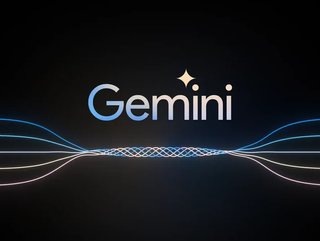What Google’s Gemini Rebrand Means for its AI Expansions

This week (February 2024) saw tech giant Google rebrand its conversational chatbot Bard to its new AI, Gemini, as part of a bid to gain more user subscriptions.
The company has stated that consumers can pay for better reasoning capabilities via a subscription version of the service to access Gemini Advanced. This offering will include a more powerful Ultra 1.0 AI model to provide users with more advanced capabilities.
Google follows several other high-profile AI companies that offer a paid-for option for their conversational AI services, after OpenAI pioneered purchasing early access to AI models, as well as Microsoft’s competing subscriptions in the United States.
A competitive commercial AI market
According to Reuters, subscribers to the Gemini service will receive two terabytes of cloud storage that will typically cost US$9.99 per month, in addition to soon gaining access to Gemini in Gmail and Google's productivity suite.
This is all part of the Google One AI Premium plan, which is the company’s largest answer to compete with rival AI developers, Microsoft and OpenAI. It highlights a growing competition within the commercial AI market, as consumers now have access to several paid-for AI subscriptions.
Announced at the end of last year (2023), Google’s much-anticipated Gemini AI was described as its largest and most capable AI model to date. Speaking at the time, Google DeepMind CEO Demis Hassabis said it was a “significant milestone in the development of AI, and the start of a new era for us at Google as we continue to rapidly innovate and responsibly advance the capabilities of our models.”
As part of Google’s global AI expansions, Gemini has since been rolled out via its Pixel 8 Pro and the new Samsung Galaxy S24 smartphones to allow users to benefit from the widespread capabilities of generative AI (Gen AI). The news highlighted a revolutionary change in the global smartphone market, as companies like Google seek to integrate Gen AI into everyday devices to monetise their models.
Gemini's smartphone rollout, starting in the US, will soon expand internationally to Asia-Pacific, Latin America and other regions with additional language support in Japanese and Korean. Google has also stated that users will be offered a two-month subscription free trial.
AI that operates behind a paywall
Ultimately, Google is hoping to gain more users of its Gemini platform, as part of introducing AI to a much wider consumer audience. Despite being behind a paywall, the company remains confident that it will be able to attract a new revenue stream of customers for this new subscription service.
As the AI sector is becoming increasingly more competitive, it is becoming necessary for businesses to invest and develop their own models to avoid the risk of falling behind rival companies.
Bard, now Gemini, has been consistent amid this landscape, with its web traffic increasing by 2% towards the end of 2023 and reaching a user base of 8.7 million. Much like similar interfaces like ChatGPT and BingAI, the Gemini chatbot highlights a global shift in how consumers gain access to information.
It makes perfect sense that Google would want to continue this upward trajectory, as it continues to perfect accessible AI.
******
Make sure you check out the latest edition of AI Magazine and also sign up to our global conference series - Tech & AI LIVE 2024
******
AI Magazine is a BizClik brand






